Early & High renaissance ; Jasper HS Humanities
1/26
Earn XP
Description and Tags
the orders a bit skewed sorry
Name | Mastery | Learn | Test | Matching | Spaced |
|---|
No study sessions yet.
27 Terms
The Medici
-Wealthy family that overtook the state; fostered economic status and stability
-Commissioned numerous artists
-Were the richest but not the most powerful as religious authority were still held at the top
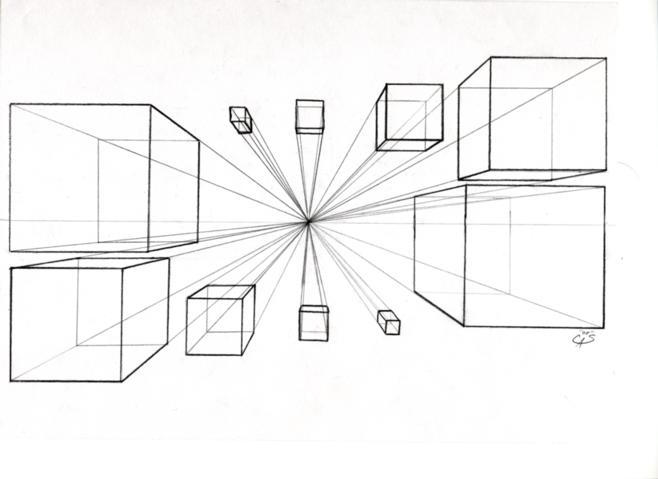
One point perspective
-Horizon line and vanishing point
-Centralizes focus
What greek value resurfaced?
Arete - Realization of full human potential
Cimabue
-From florence
-Heavy influence from byzantine art, however, was considered one of the first to break away from the Italo-Byzantine style
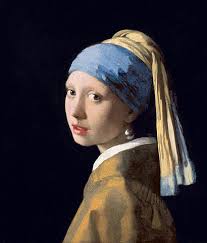
Chiascuro
Technique using light and shadow to contrast;
3D effect
Why did the renaissance start in Florence?
Growing class of merchants and bankers → economic prosperity + materialism;
Artists flourished from patronage of merchants and patrons (esp. Medici Family)
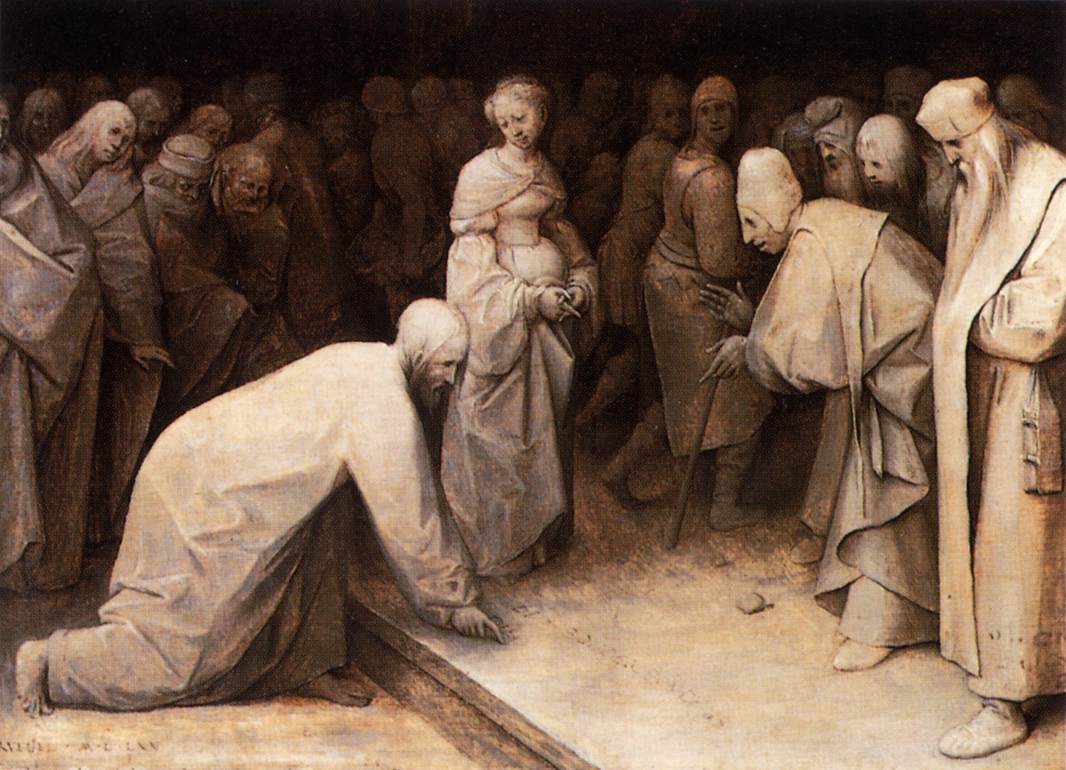
Grisaille
gray tone; typically to imitate sculpture
What are some major components of art in the Early Renaissance?
-Expression
-Realism (+Idealized)
-Balance (such as triangles)
-Perspective; depth
-Classicism (humanism)
What are 4 major philosophies found in the Renaissance?
-Secularism
-Humanism
-Individualism
-Skepticism
Secularism
Shift of focus from afterlife →present
“This life is worth living”
Humanism
-Educational and intellectual program of Renaissance
-Humans are no longer dictated by fate; we have a say
-Realistic and scientific approach to understand the world
Individualism
Individuals, not just groups of people, are worthy of accomplishments
Skepticism
Questioning and challenging of authority’s views
Especially important in the shift away from Catholic Church
Giotto
-Follower of Cimabue
-Anticipates shift →realism
-Utilized Chiascuro
-Painted Arena Chapel
Civic humanism
-Political oriented; encouraged public engagement
-Form of republicanism during Renaissance
-Writings of classical antiquity
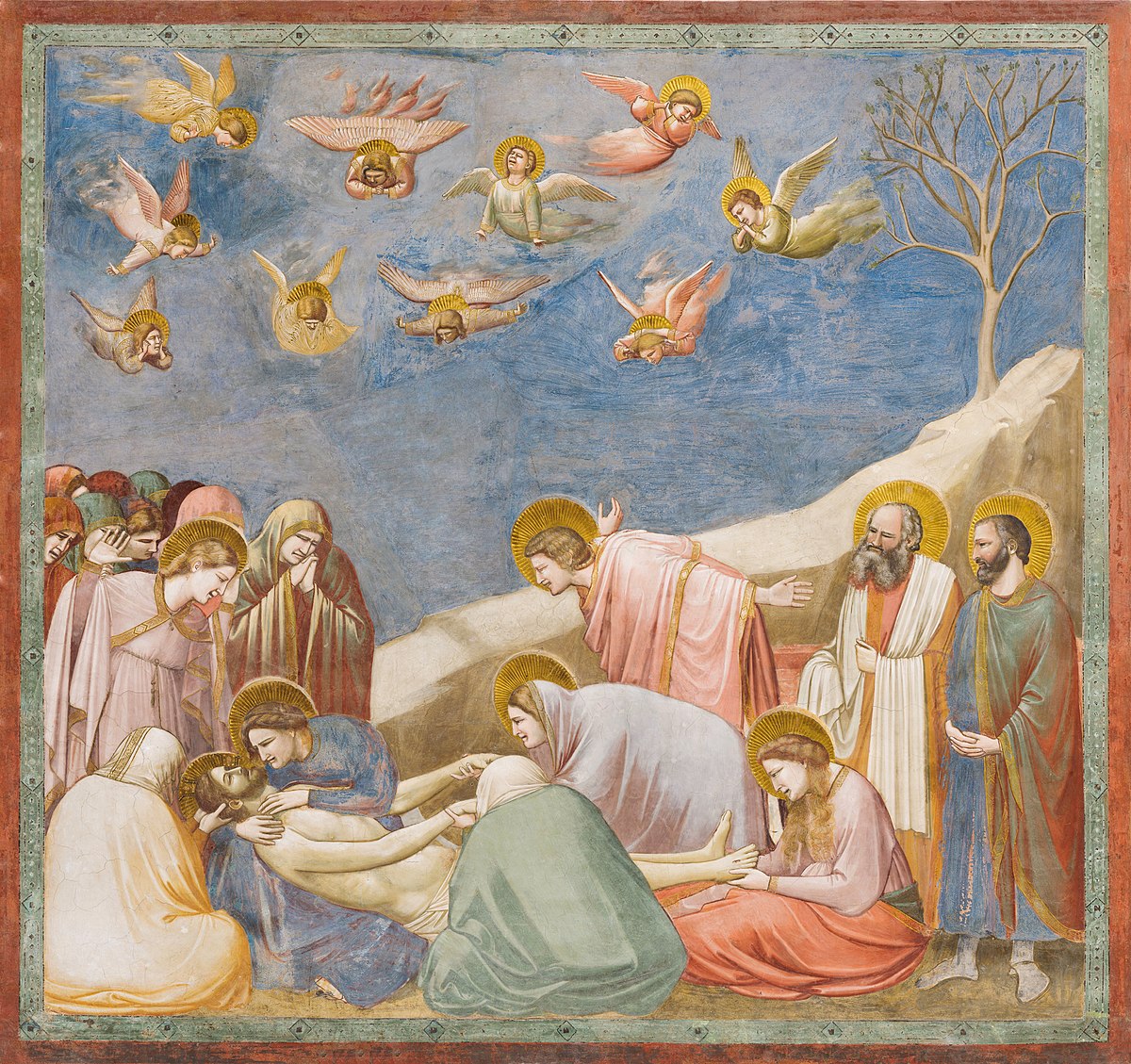
Lamentation
Mourning of Christ, painted by Giotto
-Side characters are grieving
-Strikingly human yet isn’t a portrait nor stereotyped
Patron
a person who gives financial or other support to help their cause
In context of the Renaissance, these people paid artists
Petrarch
“Father of Humanism”
Copied Latin manuscripts, loved classics & antiquity
women in the renaissance
Chose between marriage, the convent, & pursuit of liberal arts education
Utilized Renaissance to advance intellectual status & speak their voice
Caterina Sforza
Dramatically defied societal norms about women
Like a female Petrarch; cunning
Christine de Pizan
Writer that advocated for women’s equality
Lucretia Marinella
The most extraordinary of women humanists; released numerous works
*Treatise The Nobility Excellence of women & defects & vices of men: criticizes men, calls out misogyny
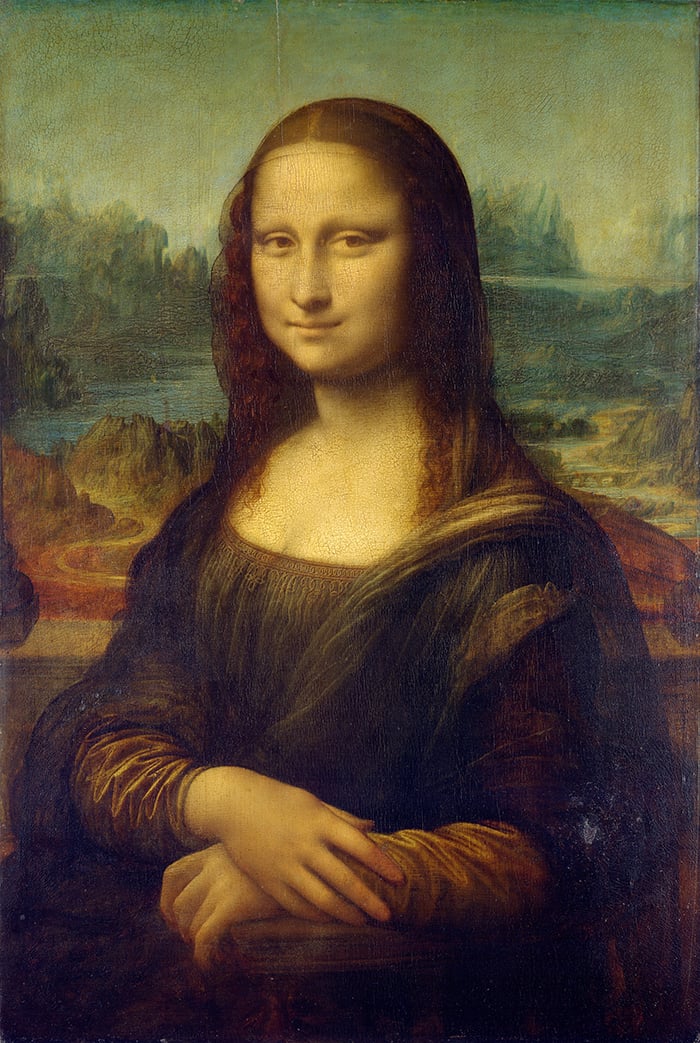
sfumato
Technique involving fine shading →soft undetectable transitions in colors & tones
Jakob Burkhardt
Historian who argued that the Renaissance was a cultural rebirth of people breaking free of medieval religious control, exploring & expressing self identity
Titian
Iconic Renaissance painter w/ Western influence
-Vibrant colors, innovative compositions; expressive brushwork
Niccolo Machiavelli
Florentine diplomat, author, philosopher, & historian
Known for his political treatise “The Prince”
The Prince
A short treatise on how to acquire power, create a state, & keep it.
“It’s better to be feared than loved”